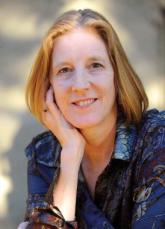Families in Psychiatry


These are exciting times for family psychiatry. In this column, I would like to sum up some of the key themes from the recent American Psychiatric Association meeting in Atlanta and how family fits in.
The Association of Family Psychiatrists (AFP), which has been in existence for about 40 years as an APA Allied organization, met last month during the APA annual meeting. Dr. Greg Miller is our representative on the Assembly Committee of Representatives of Subspecialties and Sections (ACROSS). This representation gives us an opportunity to ensure that family is considered in APA initiatives.
Who are we?
AFP psychiatrists are chairs of departments, residency directors, medical directors of general and psychiatric hospitals, child psychiatrists, and psychiatrists in private practice. Our members also are residents and allied members, such as psychologists, and directors of family and consumer organizations. One such organization is Families for Depression Awareness (familyaware.org). Its current executive director, Marlin W. Collingwood II and director of development, Valerie Cordero, attended our meeting, and encouraged us to include patient and family advocates in our presentations and activities.
Our meeting was sponsored by the Family Process Institute (FPI), most widely known for its journal, Family Process, the preeminent family therapy journal worldwide. We were pleased that Nadine J. Kaslow, Ph.D., attended. Not only is she a former director of FPI, but also she is the former editor of the Journal of Family Psychology. Dr. Kaslow, professor and vice chair for faculty development in the department of psychiatry and behavioral sciences at Emory University, Atlanta, also is the 2014 president of the American Psychological Association.
What do we do?
We discussed the changes in our specialty, mainly the broadening of family psychiatry to include family inclusion and family psychoeducation, and community involvement of families. We identified many opportunities to include in global health, integrated care in primary care, and specialty care. We announced a new book that I wrote with three other AFP members: Dr. Ira D. Glick; Douglas S. Rait, Ph.D.; and Dr. Michael S. Ascher. The book is called “Couples & Family Therapy in Clinical Practice,” 5th Edition (see www.wiley.com).
Also, at this meeting, we presented the 2016 winners for the Residency Recognition Award for Excellence in Family-Oriented Care:
• Dr. Jessica Abellard, Cooper Medical School of Rowan University, Camden, N.J.
• Dr. Aislinn Bird, Stanford (Calif.) University.
• Dr. Oliver Harper, NYU Langone Medical Center.
• Dr. Randi Libbon, University of Colorado at Denver, Aurora.
• Dr. Richa Maheshwari, NYC Langone Medical Center.
• Dr. Josh Nelson, University of Rochester, New York
• Dr. Mitali Patnaik, Drexel University, Philadelphia.
• Dr. Puneet Sahota, University of Pennsylvania, Philadelphia.
AFP’s presence at the APA
Many members of AFP and other psychiatrists interested in family care presented at the APA.
Dr. Sarah A. Nguyen and her colleagues, Dr. Daniel Patterson, social worker Madeleine S. Abrams, and Dr. Andrea Weiss, from Montefiore Medical Center, New York, presented a poster: “Importance and Utilization of Family Therapy in Training: Resident Perspectives.” Dr. Nguyen and her colleagues noted that only eight residency programs nationwide provide in-depth training in family skills and therapy. Their poster provided a PGY-4 resident perspective on the significance that family therapy training has in understanding the ways in which the context of family and larger systems has an impact on the individual.
An understanding of the resident’s own family, cultural, and social context also serves as the springboard to broaden the individual biopsychosocial conceptualization. This personal development was an essential turning point for continued professional development, as the progression of each year of training allowed for a greater appreciation of the complexity of the individual within the family and larger systems context.
Working with cultural psychiatrists
Several cultural psychiatrists are members of AFP and the Society for the Study of Psychiatry and Culture (SSPC). Psychiatry has evolved from the study of the individual to the study of culture, with minimal discussion of the family that mediates between the individual and the culture. Two APA workshops addressed this gap in theory and practice: “Contextualizing the patient interview” (which I conducted this with Dr. Ellen M. Berman) and “Cultural Family Therapy” (Dr. Vincenzo Di Nicola and Dr. Berman). The theme of SSPC’s 38th annual meeting, which will run from April 27-29, 2017, in Philadelphia, will focus on the role of family in culture (See psychiatryandculture.org) for details.
Dr. Francis G. Lu, presenting at his 32nd consecutive APA, gave the APA Distinguished Psychiatrist Lecture on Cultural Psychiatry. He also held a media session called “The Resilience of Family in Film: Aparajito.” This movie by Indian director Satyajit Ray depicts love, loss, tragedy, and resilience in the family of Apu. Dr. Lu led the audience through a nuanced discussion about the power of film to enhance our understanding of “other” and culture, and its impact on our practice.

